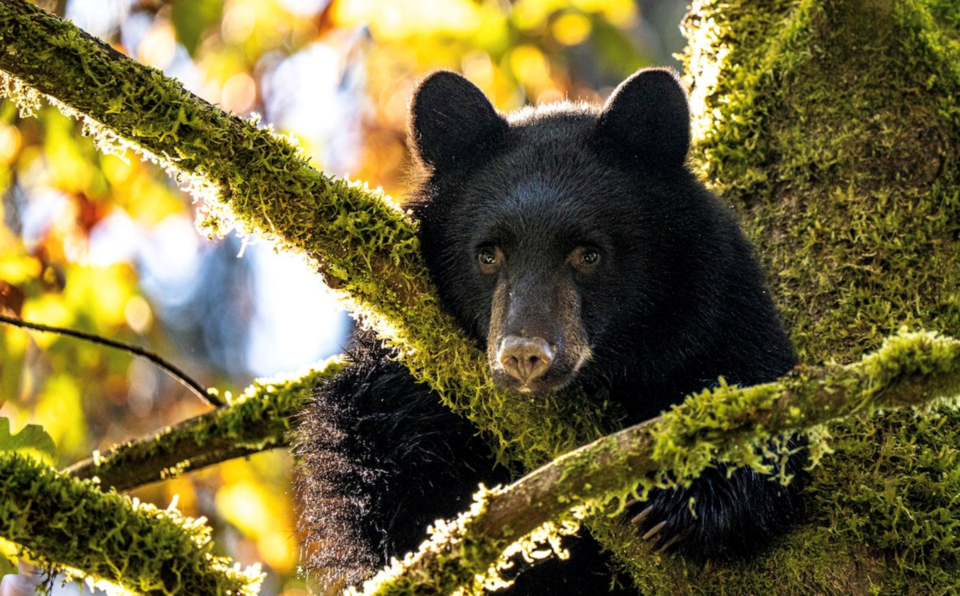The BC Green Party has tabled legislation to uniformly protect bear dens, which double as winter nurseries, across the province.
Adam Olsen, Green MLA for Saanich North and the Islands, said the party’s private member’s bill is timely with bears bulking up before their winter hibernation — a critical period for pregnant sows, which give birth to their cubs in the safety of their dens.
The only legal protections for these essential habitats exist in the Great Bear Rainforest and on Haida Gwaii, resulting in inconsistent voluntary policies by logging companies elsewhere, Olsen told Canada’s National Observer.
The NDP government can take the opportunity and demonstrate it values biodiversity by crafting preservation and enforcement measures to protect bear dens provincewide, Olsen said.
“To ensure it’s not just a patchwork … based on the goodwill of forestry companies here or there,” he said.
“But it's a responsibility we all carry, to allow other species to live and thrive as well.”
Olsen is hopeful the bill might garner cross-party support rather than be left to languish unadopted by the province.
“There’s not only public support but there also seems to be some level of support on both sides of the legislative assembly,” he said.
Biologist Helen Davis, who has researched bear dens for three decades, said the bill is potentially a positive step to ensure bear populations and forests remain healthy.
Coastal black bears rely almost exclusively on hollows in massive old-growth trees to protect them from the extreme wet weather and predators such as cougars, she said.
However, the persistent loss of large trees to logging over the past century means good den sites are declining. And second-growth trees don’t grow large enough to provide shelter before being harvested again, she said.
Bear cubs, born small and helpless, need to nurse for more than 70 days to grow strong enough to venture out in the world in the spring, she added. If they are disturbed or their shelter is inadequate, their survival is at stake.
Davis has led numerous experiments with artificial dens to try to boost housing options for bears. But aside from examining or sliding around on the man-made structures, bears are mostly disinterested, she said.
Modifications to massive old stumps are only a temporary solution because they deteriorate more quickly. Plus, there are fewer available because modern forestry methods cut trees too low to the ground to be useful.
The proposed legislation shouldn’t be too onerous for the province to enact or forestry companies to follow, Davis said. Logging companies harvesting on Crown land must already leave some stands of trees untouched for wildlife’s sake, she said.
These wildlife tree retention areas (WTRAs) could simply be anchored around bear dens without impacting the number of trees a company could log, she added. The proposed regulations would simply enforce the practice, and importantly, make it applicable to privately owned logging areas as well, which tend to be more heavily logged and subject to fewer regulations than Crown lands.
To keep bear populations sustainable means protecting them before the situation is critical, Davis said, noting you can’t immediately reproduce an ancient tree.
“... If our populations are threatened, it’s a 500-year-old fix,” she said. “We can’t just say, ‘Oh! We better grow a new den.’”
Some hunters, First Nations, and foresters suggest that the bear population is already on the decline, but the province hasn’t ever taken an accurate count, she said.
“They suggest there’s anywhere from 120,000 to 160,000 black bears, but that isn't based on any kind of science,” she said. “It's a back-of-the-napkin estimate.
“The government has no idea how many bears black bears there are, and no measure to know if [a lack of dens] is actually impacting populations already,” Davis said.
Olsen said he can’t predict how the forestry industry might react to the proposed bill, but noted concern around bear dens continues to be a topic voters raise with their MLAs.
“The forestry industry does a pretty good job of protecting its own interests,” Olsen said, adding B.C.’s forestry policy is still focused on timber values despite a promised paradigm shift from the province.
“But I think it's the job of the provincial government to protect the interests of all British Columbians — and that includes the health and well-being of our natural ecosystems,” he said.
“Our relationship with industry is set up so all other species have to sacrifice so that we can extract the highest timber value we can, and that’s just not acceptable.”




